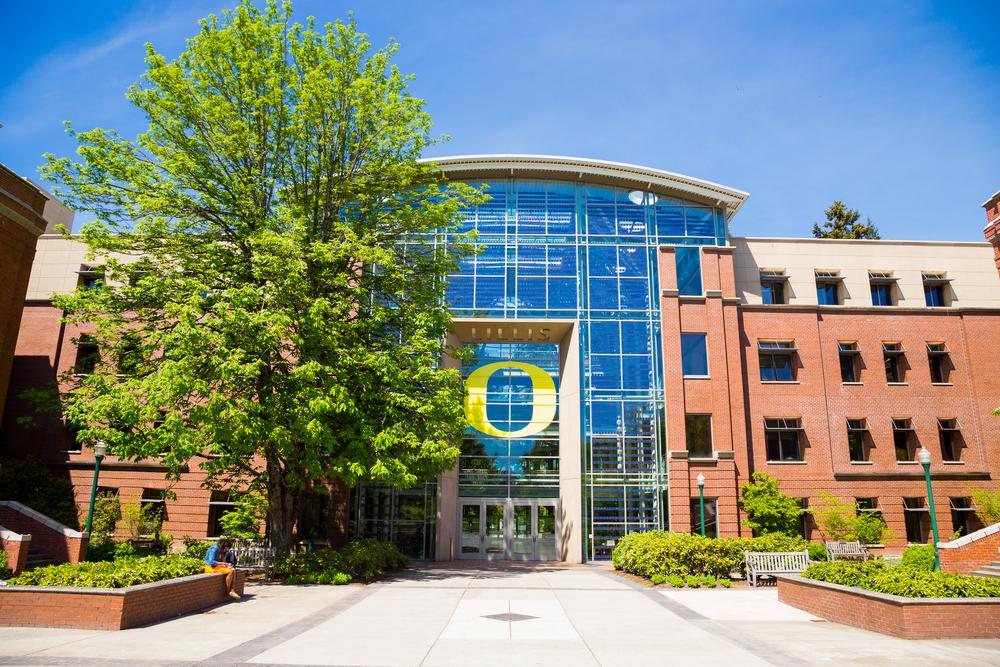
A University of Oregon program designed to contact trace COVID-19 cases and support people in isolation is being expanded into a statewide program, in hopes of reinvigorating public health systems and creating a pipeline for students into public health-related fields.
The Corona Corps, developed in 2020 by UO’s Center for Global Health and University Health Services, started as a team of 16 people, primarily UO students, who worked on COVID-19 case management and contact tracing.
As many public health entities stopped contact tracing when they had to switch their focus to delivering vaccinations and managing continued surges, the Corona Corps followed suit in September and stopped contact tracing for the county. It is still tracing for students in residence halls and large congregate living situations, and workplace-related cases. Now, the team of 40 is focused solely on helping students who test positive access resources such as food, housing, health care, financial assistance, mental health support and academic accommodations. The program will have a statewide reach following $1 million in new funding from the Oregon Health Authority, UO announced last week. It will be renamed the Oregon Public Health Corps.
Corona Corps developed infrastructure to include students
UO’s Angela Long and Jeff Measelle are the co-directors of Corona Corps and drivers of this expansion. Long is the director of Public Health Practices at the University Health Services. Measelle is a psychology professor and director of the UO’s Center for Global Health, “which is as close to public health as we get at the university from an academic point of view,” he said.
The new statewide program will evolve from addressing just COVID-19 concerns and expand its reach to other public health issues.
“We will likely take it in a bunch of different directions,” Measelle said. “We’ve developed so many great training procedures, and we’ve developed this infrastructure that’s got students playing a central role in communicable disease management, (so) we will look for opportunities statewide where we can continue to play that kind of role.”
Students will receive university training to help with communicable disease containment, health education campaigns and mental health support in the aftermath of public health challenges such as wildfires. They will work in internships and practicums that are tailored to support each community’s needs.
Mental health will be an important focus area, Measelle said, because the pandemic worsened anxiety, depression and other mental health issues, and communities need help addressing that. They also could help public health with other communicable diseases, should they come up, Long said.
Modernizing public health approaches another goal
OHA and UO have been working closely throughout the pandemic, along with other colleges and universities across the state. OHA saw how quickly UO’s program was able to get running and asked it to expand.
The state also tasked those in the program to help modernize public health and create a pipeline into the profession.
“The state has had modernization dollars for several years now, and they’ve been hobbling along,” Long said. “And it’s not a lot of dollars, but they’ve had a focus on the knowledge that public health needs to be reinvigorated. And the pandemic really brought focus to that.
“One of the biggest pillars of that modernization is reaching underserved populations.”
Accessing underserved populations will be a major focus of the new Oregon Public Health Corps. It will also, hopefully, serve as a pipeline for students into the industry of public health or other related fields. “We have these amazing, capable students who are very well-trained and know what they’re doing, and we want to make that resource available statewide and to the other communities that need support,” Long said. “They’re learning themselves — it’s helping them and their careers to help others, so we’re really excited about that.”
Corps training students for future in public health
Since the Corona Corps start in July 2020, the program has seen more than 180 students come through to help, with many different majors and academic focuses. Some have even decided to pursue public health after being part of of the program, Long and Measelle said. “The concept is that we can provide an education, not only these work opportunities, through the University of Oregon, so that the students can become the future public health workers,” Long said. “It’s a pipeline that we don’t believe has existed before, and so this type of pipeline (and) focus on underserved populations is really, we think, going to help the state start meeting its goals.”
Because the foundation was laid with UO students, they’ll still have a chance to be part of the program, but the hope is it can expand to include other students and be replicated at other universities and community colleges across Oregon.
“This is not a novel concept, right? AmeriCorps, Teach for America, these kinds of job corps, pre professional ideas, those have been out and we as a country have utilized those. The Peace Corps is actually maybe one of the earlier instantiations of this,” Measelle said. “But part of our hope is that this is that transitional period for a lot of people who may not go on to careers in public health, but still are really passionate about wanting to give back to their community.”
For more information about Corona Corps, visit coronavirus.uoregon.edu/corona-corps.